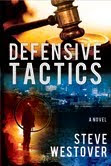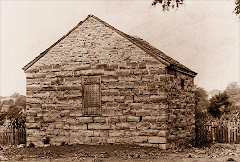 On Saturday, November 7th, 2009, I had the wonderful opportunity to meet with Elder Russell M. Nelson of the Quorum of the 12 Apostles. The Stake Presidency was being reorganized and Elder Nelson was assigned, along with Elder Anthony Burns of the Seventy, to come to the Liberty Missouri Stake to reorganize the leadership. Elder Nelson Stated in our Priesthood Leadership meeting, that with the rapid growth of the Church, and the ever increasing numbers of Stakes and Districts within the church, the days of having an Apostle of the Lord visit one Stake for a conference is likely behind us. With that in mind, I view my opportunity to meet with him privately , and be interviewed by him, as a once in a lifetime blessing.
On Saturday, November 7th, 2009, I had the wonderful opportunity to meet with Elder Russell M. Nelson of the Quorum of the 12 Apostles. The Stake Presidency was being reorganized and Elder Nelson was assigned, along with Elder Anthony Burns of the Seventy, to come to the Liberty Missouri Stake to reorganize the leadership. Elder Nelson Stated in our Priesthood Leadership meeting, that with the rapid growth of the Church, and the ever increasing numbers of Stakes and Districts within the church, the days of having an Apostle of the Lord visit one Stake for a conference is likely behind us. With that in mind, I view my opportunity to meet with him privately , and be interviewed by him, as a once in a lifetime blessing.As a member of the Stake High Council, I was one of the nearly 30 members of our Stake interviewed as a potential new Stake President. Now, having never been a Bishop and only being on the High Council for a mere 6 months, I viewed the liklihood of being chosen as Stake President somewhere between impossible and 1% probabilty. I was right. Largely, because there wasn't much risk in being called upon as a Stake President, I approached my interview with enthusiasm, and with the simple mindset that I would enjoy every minute I was able to talk with him. As it turns out, I had 5 minutes.
When I entered the room, Elder Nelson and Elder Burns stood to greet me and indicated where I should sit. Elder Nelson was taller than I expected and for an 85 year old man seemed unbelievably spry and energetic. I sat and Elder Nelson pulled out my profile sheet I had submitted to the Stake 2 weeks earlier. He reviewed with me briefly some of the information on my profile such as, my age, where I met my wife and went to college, where I work and my duties there. He noted with interest that I served my mission in the Independence Missouri Mission which includes the Liberty Stake. He asked about my mission Presidents but embarassingly, I only remembered the name of my second President. He then asked me about men I would recommend to be Stake President. I gave him three names and explained why I chose them.
After those formalities were finished, he turned to the comment area of my profile sheet where I had taken the opportunity to ask a question. The question was: In the early days of the restored church, leaders regularly spoke of spiritual manifestations, visions and revelations. In modern times the Brethren do not tell us of similar experiences. Why is this? Did the early restoration period have more of these unusual manifestations whereas the leadership now primarily receives revelation and inspiration by the power of the Holy Ghost? Or is it a policy, or decision to keep these experiences private and sacred?
I asked the question because I regularly hear members of the church make statements about how the Prophet and Apostles have all seen the Savior personally and sometimes insinuate that they sit accross the table from the Savior in meetings etc. While I don't doubt this is possible, I had never heard it stated as fact and I would prefer to base my beliefs on fact, rather than supposition. His answer was simple; I paraphrase.
In the early days of the restoration greater spiritual manifestations and visions were required to accomplish the work of the Lord with relatively unexperienced men. They received the manifestations they needed to progress the work, and of course restore the keys of the Priesthood. The needs today are different, and in 25 years, they could be different still, but the brethren are skilled at recognizing the promptings of the spirit, and they rely on the Holy Ghost for their direction. Now, this in no way precludes the possibility that some have received special manifestations, or that they are still possible, but the Holy Ghost teaches and guides the Brethren, just as it teaches and guides us, which is why we must all learn to recognize and act on the promptings of the Spirit.
The five minutes went very quickly, in fact I had to look at my watch once I left the office to ensure I got my full five minutes. I did. Later I had the opportunity to attend the Priesthood Leadership Meeting, the Saturday Adult Session and then the Sunday morning Session where the new Stake Presidency was called and sustained. All in all, it was a wonderful weekend.
Based on my simple experience with Elder Nelson, and knowing that the other members of the High Council and Bishops had very similar experiences, I have no question in my mind, but that the Holy Spirit directs the Prophet and Apostles in all they do. Perhaps the greatest difference between them and us, is their ability and confidence in recognizing and acting on the promptings of the spirit.




 My wife teases me because my memory is often found lacking, but I vividly remember a snow camp I participated in when I was a young scout. This particular camp was on Mt. Bachelor in the Oregon Cascade Mountains.
My wife teases me because my memory is often found lacking, but I vividly remember a snow camp I participated in when I was a young scout. This particular camp was on Mt. Bachelor in the Oregon Cascade Mountains.



























